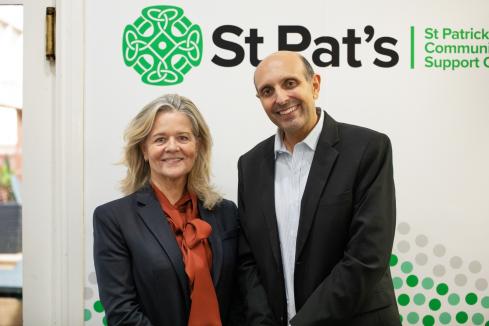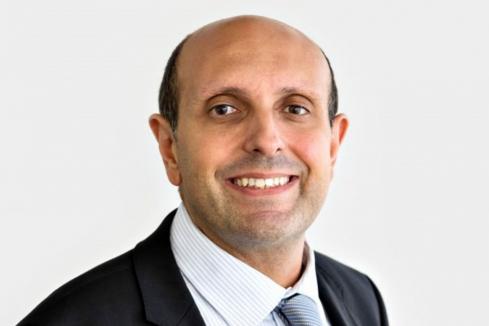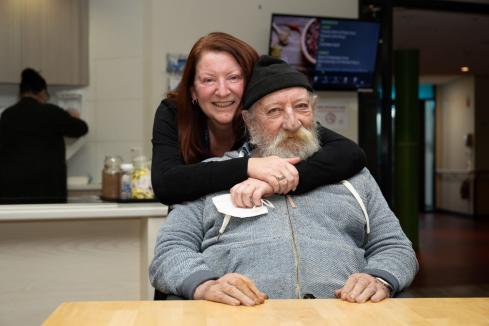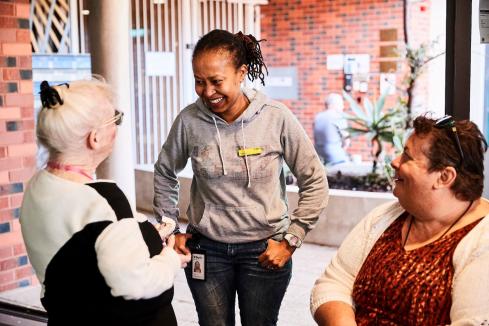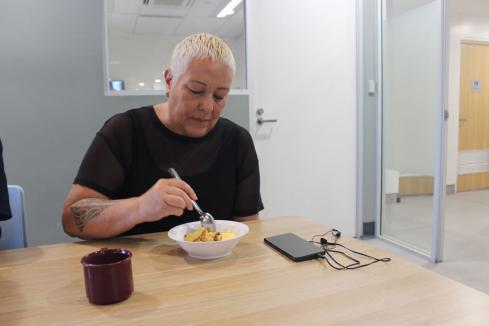
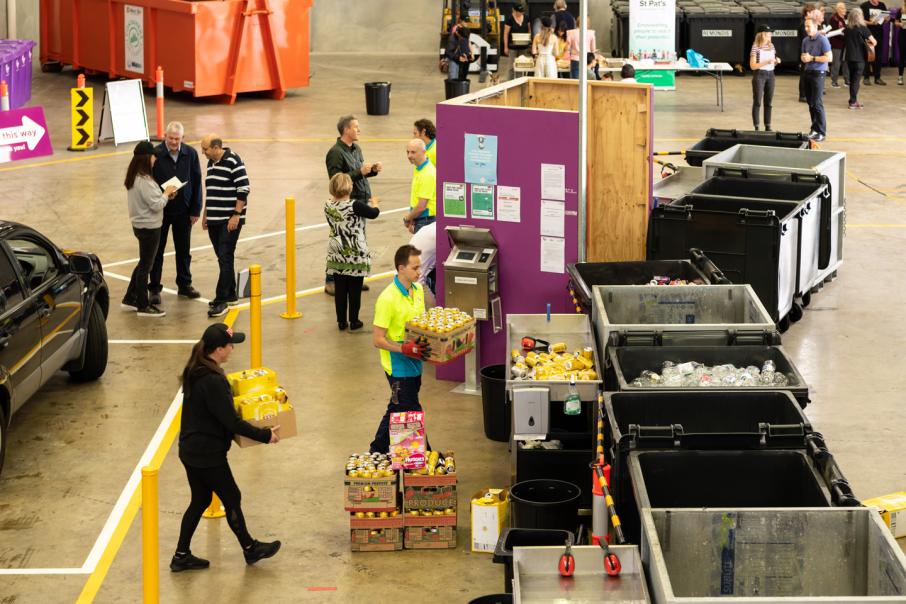
When every dollar is tight, justifying investing money in a Not For Profit is a role which many CEOs face on a regular basis. It’s incumbent on those who drive the long-term strategies of NFPs to demonstrate to organisations considering injecting funds into a particular cause that the ROI will be worth every cent.
Some of WA’s leading NFPs discuss the importance of delivering more than the ‘feel good factor’ after a corporate organisation jumps on board – with hard data and statistics now the order of the day to show a return on investment at every step of the way.
Appealing to a sense of social responsibility
Convincing a corporate organisation to partner with a NFP is at the heart of much of whether they will be able to deliver essential services or not. So to an extent, the job of the leader of a NFP is to make the case to a potential donor about why their dollars will do more than just tick a box on the corporate check list.
Michael Piu, CEO of St Patrick's Community Support Centre, a leading homelessness charity based in Fremantle, factors in the need for underlining corporate social responsibility in any successful pitch for support.
“Corporate Social Responsibility is an important factor for shareholders who are becoming more discerning regarding their investments and how they align with their personal ethics,” he says.
“Increased transparency and consumers’ cognisance of their power as well as the increasing power of corporations and their impact on society, has meant both public and private companies are re-examining their responsibility to protect the interests of their shareholders, employees, customers and their community.”
After 50 years of working side-by-side with vulnerable people, St Pat’s has a deep understanding of the causes and solutions to homelessness.
“Like many NGOs, we’ve traditionally maintained a low profile, focusing on addressing the immediate needs of our clients and community,” says Mr Piu.
“But in recent years, St Pat’s has recognised that leadership is also vital, particularly when it comes to issues like homelessness which is highly complex and can often be overwhelming for people outside the sector.”
Attracting the corporate sector to the services and causes St Pat’s is involved with has allowed corporate supporters to see very real, measurable ROI results – because without their support, services would quite literally not be able to be delivered.
“Our experience in delivering support services with minimal resources has meant we can provide a high level of return on investment for our funders and supporters,” says Mr Piu. “Our programs are both cost-effective and highly successful, as independent evaluations have shown. For example, our 20 Lives 20 Homes (20L20H) program, which ran from 2019 to June 2022, supported 90% of participants into accommodation at some point during the program, with 69% of people maintaining their tenancy for more than a year despite the challenges of a lack of appropriate social housing and the tightest rental market in Perth for 40 years.”
Measurable, positive results like these make it relatively simple for Mr Piu to make the case to potential supporters that their dollars will directly benefit end users. In addition, by helping individuals, the burden on the community-at-large as a whole is alleviated too.
“Programs like 20L20H are important, because they help alleviate the considerable cost-burden of homelessness on our health, justice and welfare system,” he says.
“The estimated cost to the health system alone of 25 participants in the program was $440,000 over three years, comprised of emergency department visits and inpatient stays. The longer someone spends rough sleeping, the poorer their health outcomes, but when people are housed they can address long-term health concerns including support for mental health and drug and alcohol use, which compound physical health challenges as well as incidences of anti-social behaviour.”
Benevolence vs Benefit
St Bart's CEO Samantha Drury states simply that the NFP would not be able to not support the many hundreds of men, women, children and gender diverse people it does without the benevolent support of WA’s corporate and philanthropic communities, as well as the general public.
“St Bart’s has supported 3000 people over the past three years,” she says.
“But the level of support we have been able to provide has been significantly enhanced by Corporate Perth, which has contributed towards almost $4.5M in donations and enabled many people to thrive, achieve their goals and secure a safe place to call home.”

Ollie (left) is now thriving as part of St Bart’s Reconnecting Lives Program, pictured with Simone McGurk, Minister for Child Protection; Women’s Interests; Prevention of Family and Domestic Violence; Community Services
People like Ollie (44), who spent 26 years on the street after escaping family abuse and facing mental health challenges. Ollie was offered a room at St Bart’s Women’s Service before being supported into her own home in the community through St Bart’s Reconnecting Lives Program and is thriving.
Then there’s Cory, who found his way to St Bart’s transitional accommodation for men when his life took a turn after a marriage breakdown. After losing his house, cars and access to his children, Cory has since become a St Bart’s Community Housing tenant and a Reconnecting Lives Program participant, and has reconnected with his son.
In it for the long haul
Securing long-term corporate support is the aim for many NFPs – and it’s mutually beneficial to the supporting corporate organisation to be able to see the results of an investment over several years having a positive effect, rather than a short-term donation which may paper over cracks but not solve issues down the line.
Being able to plan for the long-term sustainability of its programs through the support of Perth’s corporate community is a strategy that St Bart’s continues to strive towards, and has been evidenced with the organisation’s BHP-funded Reconnecting Lives Program (RLP).
Launched in partnership with BHP in 2018, RLP was initially run as a pilot program for 18 months. For people who are in long term accommodation, St Bart’s is proud to share that it has a 100 per cent success rate around enabling them to maintain their tenancies and avoid the potential spiral back to homelessness.
“It is through our partnership with BHP that we can provide the wraparound support they need to enable people to thrive in their new homes. BHP extended the pilot funding to December 2022, and we are now looking for a new corporate partner to ensure this support can continue,” says Ms Drury.
“In a sector where a number of organisations are advocating for the people in our community who are unable to advocate for themselves, our Reconnecting Lives Program is a truly unique offering.”
The wraparound support available to RLP participants includes tenancy support, social support, goal planning, NDIS package application and implementation, referrals to relevant health and support services, and assistance to access training and vocational upskilling.
In return, corporate partners of this Program receive six-monthly impact reports that outline achievements, challenges and learnings, as well as an overview of staffing and project deliverables including the number of people supported, source of referrals, demographics, current client accommodation status/outcomes, and goals achieved.
“Client stories also feature heavily in these reports. Personal experiences of homelessness
and journeys through St Bart’s services are documented, giving our partners a personal connection to the vulnerable people within our services,” says Ms Drury.







